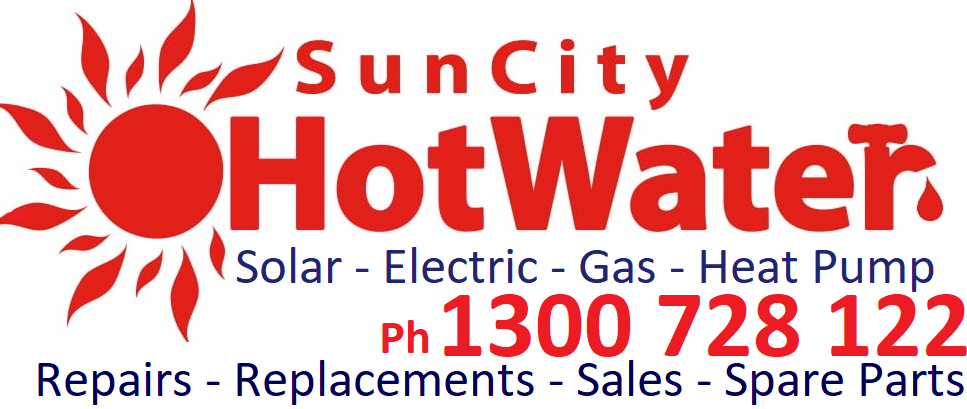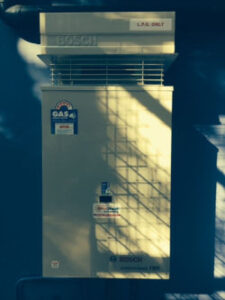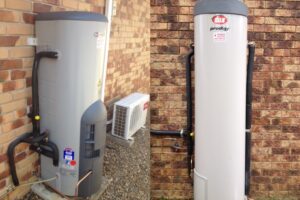Benefits of Solar Pool Heating
Low Running Costs
Solar pool heating uses free energy from the sun to heat the pool water. This makes solar heating extremely low cost to run, but it is not free. Even though the energy that is used to heat the water is free, a solar pool heating system uses the existing pool pump to circulate the water through the system. However, the cost of running a pool pump is usually between $5 to $20 per week (this will vary with individual pool pumps, how long they for, and electricity rates).
Lower Upfront Cost
Solar pool heating systems are cheaper to buy than heat pump heaters. But a solar pool heating system will still set you back a sizeable amount with an average system cost of around $2500 (for a standard sized pool of 8m x 4m). Additionally, the complex installation of the system will set you back another $1300. However, at a total average cost of approximately $3800 the cost of a solar heater is generally still cheaper than buying and installing a heat pump system.
Drawbacks of Solar Pool Heating
Large System
One drawback of a solar pool heater is the size of the system. For a solar pool heater to be efficient the system has to be at least 80% of the size of the pool, with a recommended size of 100%.
Weather Dependent
Another drawback of solar pool heating is that it is entirely dependent on the weather and is unable to operate at night or in cloudy conditions. This means that solar pool heating will only extend the time your pool can be used rather than creating a comfortable pool temperature all year round. However, for sunny climates such as Queensland, this is much less of an issue.
The fact that the system can only run during the day also means that your pool pump will be using electricity during peak tariffs which can significantly raise your energy spend.
Heats Slowly
Unlike other pool heating systems, solar pool heating can only raise the temperature of the pool water by a few degrees each day. Solar pool heaters also require the use of a pool blanket to keep the heat in order to heat the water most efficiently.
Requires More Maintenance
Solar pool heating systems also requires more maintenance and repairs than comparable heat pump systems. This is due to the fact that the system is constantly exposed to the elements which causes faster weathering and decay. Additionally, cockatoos often cause damage to roof mounted solar heating systems which can result in costly repairs or even having to replace the entire system.
Shorter Expected Lifetime
Finally, solar pool heating systems have an expected lifetime of only 15 years, whereas, comparable heat pump pool heaters are expected to last around 20 years.
Benefits of Heat Pump Pool Heating
Independent of Weather
One benefit of heat pump pool heating is that it is relatively independent of the weather. Unlike solar pool heaters, heat pump systems can heat pool water in any weather condition whether sunny, cloudy and even at night. However, as the system heats the water using warmth from the air most systems require a minimum ambient air temperature of around 7 degrees.
Heats Pool Quickly
Unlike solar pool heaters, heat pump pool heaters can heat the pool water relatively quickly. For example, a solar pool heater can take weeks to heat a pool to 28 degrees whereas, a heat pump pool heater can do it in a matter of days. Additionally, heat pump heaters can be run overnight meaning that you can turn the heater on at night and have the pool water at a comfortable temperature by the next day.
Heats Pool Year Round
Although heat pump pool heaters use warmth from the air to heat the pool water, most heat pump systems are designed to work in temperatures as low as 7 degrees. This means that in the hot Queensland climate, heat pump pool heaters can be used to keep pool water warm all year round.
Energy Efficient
Heat pump pool heaters use a form of solar energy to heat the water making them highly energy efficient. This is because the sun warms the air and the heat pump system uses the warmth in the air to heat the pool water. This makes heat pump pool heating systems highly energy efficient as they can produce 5kW of heat for every 1kW of energy used.
Heat pump pool heaters can be made even more energy efficient with the use of a pool blanket to reduce heat loss. However, running costs of heat pump systems are still slightly higher than that of a solar pool heater.
Low Cost Installation
The installation of a heat pump pool heating system is much simpler, quicker and resultantly cheaper than installing a solar pool heater. This is due to the complexity and large size of solar heaters. Installation of a standard heat pump pool heater will cost around $400 whereas a comparable solar system costs more than three times that amount at an average installation cost of $1300.
Longer Expected Lifetime
Heat pump pool heaters are expected to last 25% longer than their solar counterparts with an expected lifetime of 20 years. This significantly reduces the extra cost of buying a heat pump system over a solar system as you will get much more use out of it.
Drawbacks of Heat Pump Pool Heating
Higher Upfront Cost
On average, the cost of a heat pump pool heater is much higher than a comparable solar pool heating system. For a standard pool of 8m x 4m a heat pump system can set you back anywhere from $4500 to $6000, whereas, a solar heater for the same pool would cost approximately $2500. (However, if you add on the $1300 installation cost you’re looking at more like $3800).
Higher Running Costs
Finally, the running costs of a heat pump pool heater are slightly higher than a solar pool heating system. However, as mentioned earlier, heat pump pool heaters are still highly efficient and low cost to run with standard pool size running costs of around $500/yr between southern Queensland and central New South Wales.







